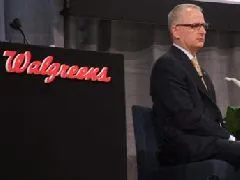WASHINGTON — A coalition of consumer groups came out this month against the merger of pharmacy benefit managers Express Scripts Inc. and Medco Health Solutions Inc., joining an increasing number of federal lawmakers questioning the deal.
The coalition, including U.S. PIRG, the Consumer Federation of America, the National Consumers League and others, argues that the merger will diminish health care plans’ safeguards for consumers.
“Health plans have distinctly different interests and thus have not been adequate protectors of consumer concerns,” the group wrote to Federal Trade Commission Chairman Jon Leibowitz. “This merger will create a dominant PBM with the market power and leverage to effectively force plans into restricted networks that will ultimately harm consumers.”
A growing number of federal lawmakers and consumer advocates have also voiced their opposition to the merger.
In a letter to Leibowitz, Rep. Ralph Hall (R., Texas) stressed the importance of maintaining a business landscape with limited interference from middlemen. Allowing one PBM to handle 41% of all prescriptions would be problematic, and FTC approval of the deal would worsen the already struggling health care delivery system, Hall said.
If the FTC “has any role in deciding the type of care patients receive, it is to create and ensure a vibrant private marketplace for insurance,” he said. “The merged company would dominate the market and enable them to squeeze the health care system at the expense of patient choice, access and service.”
Hall said he feels FTC approval would threaten jobs, increase costs and diminish patient health at a time when the country can ill afford such an impact.
Steve Pociask, president of the American Consumer Institute Center for Citizen Research, writing in The Hill’s congressional blog, compared the merger to a misguided effort during the Great Depression to plant kudzu vines in areas ravaged by drought. The kudzu had a propensity for rapid growth that has wreaked extensive damage to forests in the South to this day, he noted.
Similarly, Pociask said that PBMs “originally hired to help manage prescription plans are now extracting so much profit and distorting the markets so thoroughly that they have become the kudzu of the health care industry.
“Oversight needs to review the industry’s market power, self-dealing, conflicts of interest and lack of transparency — all of which will be exacerbated if the FTC does not block the planned merger,” he said.
In December several federal lawmakers questioned the deal. In a joint letter to the Leibowitz, South Dakota’s congressional delegation — Democratic Sen. Tim Johnson, Republican Sen. John Thune and GOP Rep. Kristi Noem — said “preserving access to care and consumer choice should not be overlooked.”
They pointed to the potential dominance that the merged entity would have, particularly in the specialty and mail-order pharmacy markets and noted the vital services community pharmacists provide.
In a separate letter to Leibowitz, Rep. G.K. Butterfield (D., N.C.) noted that “because the consolidated PBM will have the largest piece of a market that is already highly concentrated, there is a possibility that prescription prices would increase.
“Ultimately this market consolidation and price increase will be disproportionately felt by elderly, poor and rural populations,” they said.
The input has drawn the praise of pharmacy advocates.
“We greatly appreciate these members of Congress, and all members who have taken a stand for patients by voicing their doubts about this merger.” National Community Pharmacists Association chief executive officer Douglas Hoey said. “If approved, we fear [the merger] would reduce patient choice and access to pharmacy services and ultimately result in higher prescription drug costs.”





